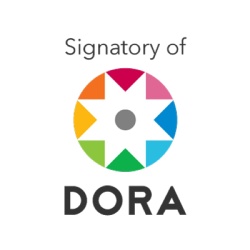Leadership Administrative Creativity in Algerian Institutions
قيادة الإبداع الإداري داخل المؤسسات الجزائرية
Abstract
The primary task of the leaders is charging sensations good in the hearts of those who lead them, and so when it creates a commander form of resonance which give rise for stocks of the positive lead to the achievement of goals at the individual level and Almntmh so the roots of the function of leadership is essentially emotional, which depends on the creative side, which highlights the excellence in thinking and scarcity and the ability to access to the direct and familiar behind new ideas and useful and connected to solving specific problems or assembly and reinstallation of the known knowledge of the styles in unique forms, not only creativity is limited at the technical side but also exceed the Machinery and equipment and methods of manufacturing and improvements in the organization itself and the results of training and job satisfaction, leading to an increase in productivity Blalrgbh overwhelming in the use of reason capabilities in new applications, to find and implement ideas, operations and new products and services, and it will be on an individual or organizational level.
Downloads
References
Wynett, C Inspiring innovation, Harvard Business Review, Vole, 80, No.8.
Kreitner, (R) & Kinaki (1992), Organizational behavior (2nd Ed). Homewood: Irwin.
Smith, (M, Analyzing Organizational behavior (1st Ed), London: Macmillan Press.
- Arabic references in English :
Al-Sarf, R. (2001), Creativity and Innovation Management (Idārat al-ibdāʻ wa-al-ibtikār). Dar Al-Rida. Damascus.
Al-Rahan, O. (1992), Theories of Contemporary Business Organizations (Naẓarīyāt munaẓẓamāt al-Aʻmāl al-muʻāṣirah). Al-Safadi Press. Oman.
Assaf Muhammad, A. (1999), Organizational Administrative Behavior in Contemporary Organizations (al-Sulūk al-idārī al-tanẓīmī fī al-munaẓẓamāt al-muʻāṣirah). Al-Muhtasib Library. Oman.
Ali Ben, H., & Al-Balish, B. (1991), AL Djadid Dictionary (al-Qāmūs al-jadīd lil-ṭullāb). National Book Foundation, Algeria.
Al-Rashdan, A. (1999), Sociology of Education (ʻIlm ijtimāʻ al-Tarbiyah). Dar Al-Shorouk. Algeria.
Al-Fayad, M. (1995), The Impact of Leadership Style on Administrative Creativity in the Jordanian Public Shareholding Industry (Athar al-namaṭ al-Qayyādī ʻalá al-ibdāʻ al-idārī al-Ṣināʻīyah al-musāhamah al-ʻĀmmah al-Urdunīyah, wa-risālah mājistīr, Kullīyat Idārat al-Aʻmāl al-Jāmiʻah al-Urdunīyah), Master’s Thesis, Faculty of Business Administration, University of Jordan. Jordan.

This work is licensed under a Creative Commons Attribution-NonCommercial 4.0 International License.









